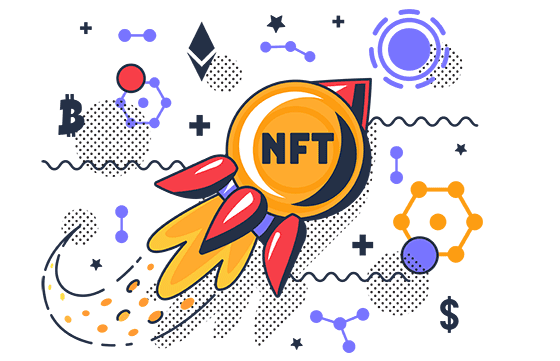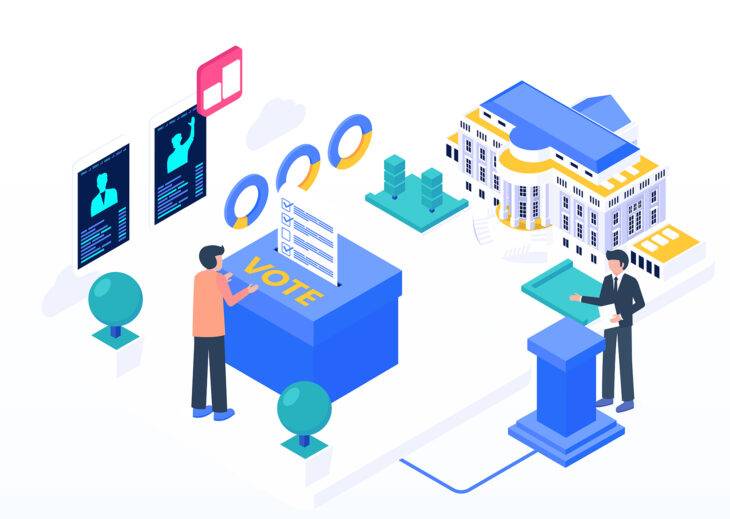The finance industry is undergoing a radical shift in light speed. Institutions around the world have no option but to adapt and conform to the evolution of the financial systems. People can expect significant changes to money transactions and management in the coming future.
Blockchain technology and cryptocurrencies have been central in financial conversations throughout the monetary markets. There are the lovers and the haters. However, the fact that distributed ledger technology will disrupt financial institutions and the global economy is indisputable. That is according to one of the most influential names in global finance, Christine Lagarde (International Monetary Fund Managing Director & Chairwoman). She has made the significant statement, “cryptocurrencies could displace central banks and international banking.” This displacement implies that the power over the financial systems will be taken away from institutions and governments, and be given to whom it truly belongs, the people. In this article, we will cover some examples of what is about to change in regards to the current financial systems and how it will affect the world.
Wuzu and the Blockchain
Wuzu uses blockchain technology for operations liquidation and transaction clearing. Unlike traditional stock exchanges where activities are performed using a simple, centralized database, we use blockchain technology due to its speed, transparency, and safety. A transaction at a traditional stock exchange takes up to 3 days to be validated. A similar activity performed on the blockchain would take 1 minute and with a much higher level of security since all operations are recorded in a public ledger open to anyone, which is the total opposite of the traditional stock exchange where everything happens behind the scenes.
Blockchain technology main characteristics
Distributed ledger technology is considered by the tech industry to be the biggest computer science achievement since the internet, there are many characteristics to back up such a strong statement, but the following core aspects are the ones that make it truly revolutionary for the financial industry.
Immutability — Once transaction data has been recorded on the blockchain it is impossible to tamper with it. The data becomes incorruptible and non-expirable.
Transparency — Blockchain by definition is a network of computers used to power it. Any node in the network or anyone who interacts with it has full access to every piece of data recorded in real-time.
Autonomy — Individuals who use blockchain technology are in full control over their assets, they are also responsible for their security and storage.
Censorship resistance — Since blockchain technology is a gigantic network of computers located around the world, it makes it by design practically impossible for regulators to interfere with this technology due to its spread-out global nature.
How blockchain and cryptocurrencies will change the financial systems
There are countless applications for blockchain technology and cryptocurrencies that have the potential to completely shake up the financial systems of today. Here are a few examples:
Change the money transfer process — Today in order to make any financial transaction using national currency, there is always a third party involved, either a bank or a credit card company. This involvement implies administration and transaction costs to both the payer and the beneficiary. Money transfers that are done via blockchain remove the participation of third parties. It becomes a peer to peer transaction that happens almost instantaneously, without institutional administration and transaction fees. Consequently facilitating microtransactions, as well as higher rates of productivity. The removal of a middleman in the money transfer process translates to the democratization of its control mechanisms.
It will keep companies and individuals accountable — In the current financial system when a mistake is made, or something goes wrong when it comes to money transactions, the blaming game begins. The fault could lie on an individual, company, or bank. Often an investigation is necessary to figure out who is liable for what went wrong. Quite often the investigations are lengthy and not objective, which might lead to the involvement of other parties such as lawyers, regulators, and the justice system in order to reach an agreement. If the same transaction has been done via the blockchain, no investigation would be required. All it would take is to check the transactions log to immediately identify the issue, and whose fault it was. Significantly reducing the time, and costs it would take for resolutions.
Offer a reliable alternative to unstable national currencies — Let’s use the current state of Zimbabwe’s national currency as an example. For Zimbabweans, cryptocurrencies offer rare protection from the onset of hyperinflation and financial implosion. Some are turning to cryptocurrencies out of desperation as their bank deposits lose value almost by the day, while others are using it for housekeeping such as funding family members studying abroad. People living in countries under governmental financial threats would be able to have some level of peace of mind knowing that their assets would be out of institutional hands. Blockchain technology has the potential to bring significantly more financial security to the population from countries with an unstable economy.
Give people control over their money — We live under the illusion that money deposited into our bank accounts belongs to us. The fact is that under certain circumstances, governments can freeze bank assets as they please. Take the near-collapse of the Greek economy during the global financial crisis of 2008 for example- In order to minimize capital circulation, Greek financial regulators froze the bank accounts of the entire population, allowing minimum access to money, which led to the bankruptcy of countless businesses and individuals. This threat would be eradicated with blockchain technology, as the absence of third parties allow users to be their own bank. A traditional bank is a business like any other, it needs cash flow. One of the aspects of a bank business model is how they use people’s money as collateral to give out loans with high-interest rates or to make investments without the owners consent. Only a very small percentage of the profits gained via interest over loans or investments are passed over to clients. Banks justify this practice by providing capital “insurance” and giving the impression that the money is on “safe hands”, which is true theoretically but not practically, as mentioned in the Greek case. Life without banks translates to full independence from financial institutions and how they use the money of others to guarantee their operations. However, the lack of third-party involvement implies that individuals would have full control over their capital and that includes its safety and storage. More control also means more opportunities regarding one’s own financial assets.
Loss of governmental and institutional control — Governments and financial institutions control everything related to finance today, from interest rates to the number of money individuals are allowed to withdraw from their bank accounts. Blockchain technology gives people full control over their financial assets. Money is power and less control over it means exactly that, less power to governments and institutions. It would facilitate more equal distribution of wealth and drastically diminish financial inequality.
It will make the world financially borderless — I will use myself and the company I work for as an example of this new reality. The company and most employees are based in Brazil, and I am located in Holland. We work in perfect financial synergy. I get paid in Bitcoins for the work I do, without any third party costs (besides the minimum fee I pay to exchange my BTC for Euros), without any kind of interventions or delays. If it wasn’t for blockchain technology and cryptocurrencies, this kind of work condition would be quite expensive, challenging, and cumbersome. A financially borderless world would have significant consequences for the global economy, such as; A world where more people and companies have the ability to freely negotiate and perform financial transactions with each other. Free circulation of capital between public and private entities. The creation of an environment that would facilitate the establishment of new businesses around the world. It would also diminish the social-economic gap due to more access to capital.
The inclusion of billions of unbanked individuals in the global economy — It is estimated that around 2 billion people around the world do not have a bank account. That means that about approximately 2 billion people are entirely shut off from the global economy. They are also not able to have banking services such as, having a debit or credit card, save money, get a loan, make investments, etc. Blockchain and cryptocurrencies already provide some of these services, and all of them and many more in a very near future.
The financial applications for blockchain technology and cryptocurrencies are beyond the imagination, and we are just scratching the surface. Every day new projects come along adding more value and functionality to this revolutionary financial concept. These are applications of blockchain technology in the financial systems alone, the possibilities are mind-blowing outside of it as well.
Financial institutions around the world are walking on eggshells, the last thing they want is to be displaced, but as Christine Lagarde said, this fact is indisputable, and since a fact is a fact, they need to start getting used to this new reality very soon.
Get in touch with me on LinkedIn and follow me on Medium.















